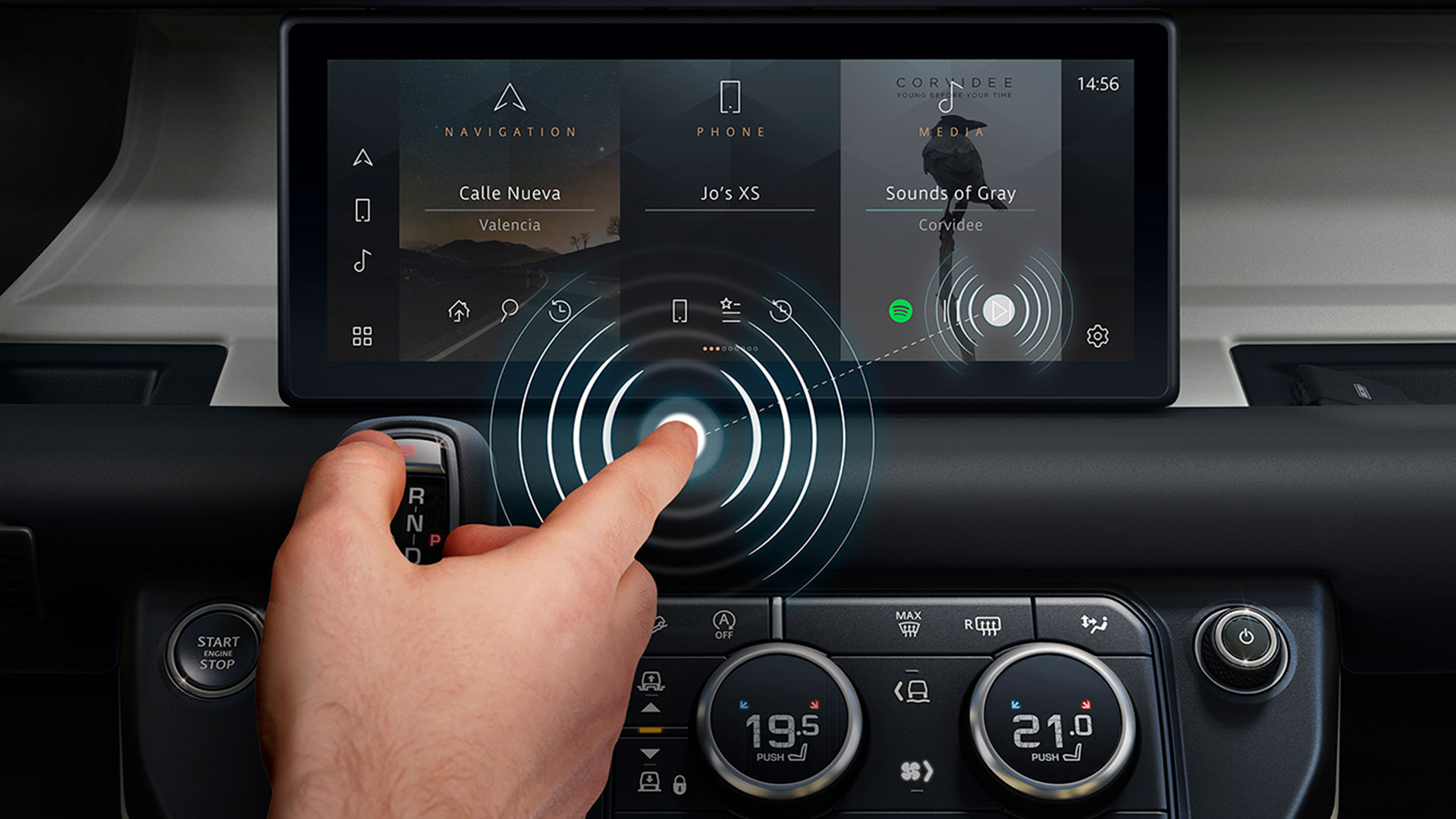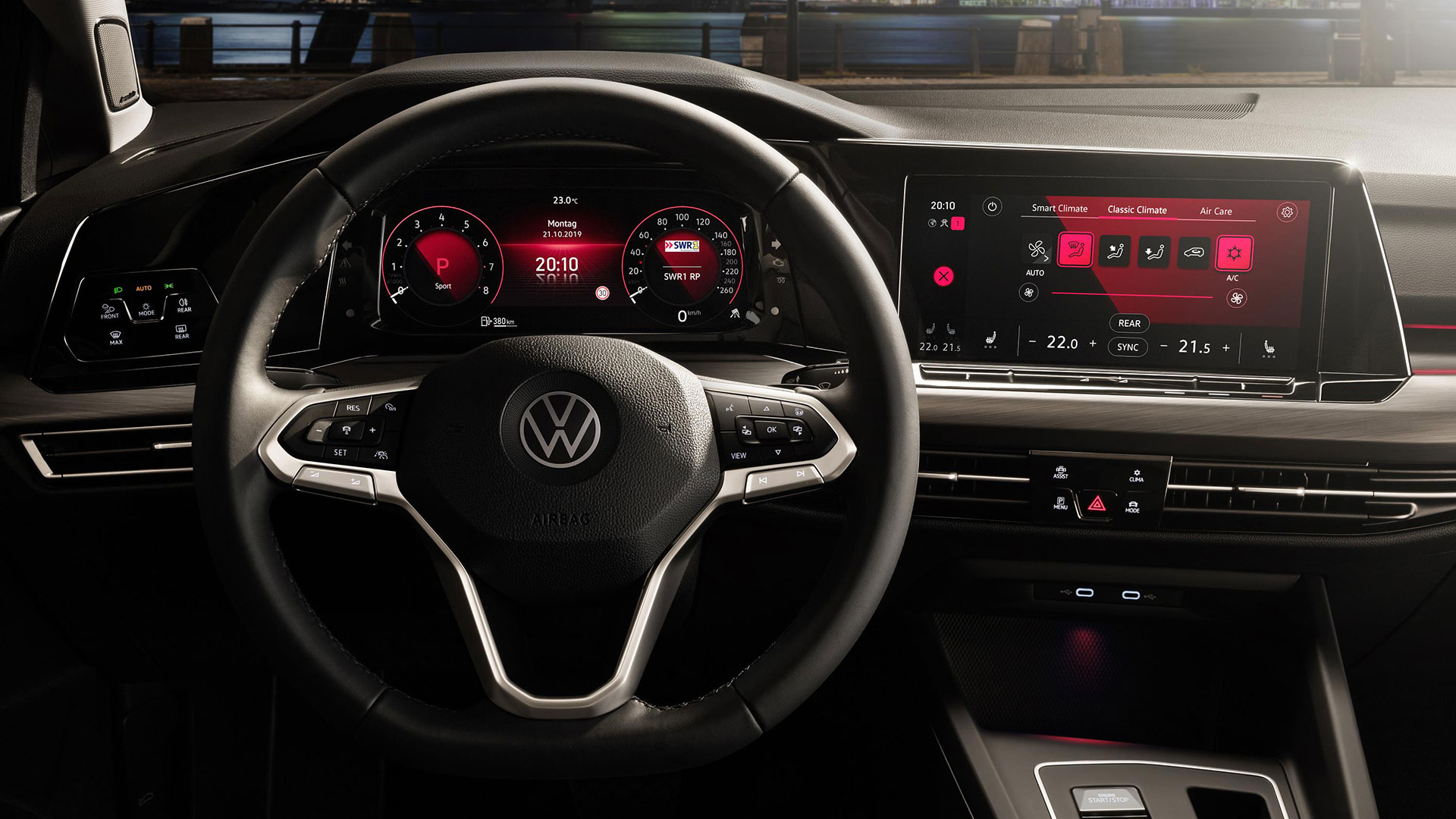
Jaguar Land Rover has developed a new contactless touchscreen to improve driver safety. It could also help reduce the spread of bacteria and viruses.
The system uses so-called ‘predictive touch’ technology to anticipate a user’s intended target on the touchscreen. This is done via artificial intelligence (AI) and sensors. In theory, drivers will be able to control the sat-nav, climate control and media without touching a button.
Laboratory tests and on-road trials suggest that predictive touch tech could reduce a driver’s touchscreen interaction effort and time by up to 50 percent.
There’s an increasing reliance on touchscreens to control primary functions in car cabins. While such systems help to simplify a car’s dashboard – not to mention add a certain ‘wow factor’ – some touchscreens are difficult to use on the move. This is especially true if some functions are ‘hidden’ in sub-menus.
The new Volkswagen Golf takes the concept of a digitalised cabin to the next level. In his review, MR’s Tim Pitt said he wasn’t “fully convinced” by the new approach, arguing that “the minimalist design and deference to touch controls may not be perceived as progress”.

A touchscreen that reduces the amount of time a driver takes their eyes off the road will be a welcome development. Not touching the screen will have other benefits, especially in a post-coronavirus world. Indeed, it’s not difficult to see how the technology could be used beyond the automobile.
‘Reducing the cognitive load on drivers’
Lee Skrypchuk, human-machine interface technical specialist at Jaguar Land Rover, said: “As countries around the world exit lockdown, we notice how many everyday consumer transactions are conducted using touchscreens: railway or cinema tickets, ATMs, airport check-ins and supermarket self-service checkouts, as well as many industrial and manufacturing applications. Predictive touch technology eliminates the need to touch an interactive display and could therefore reduce the risk of spreading bacteria or viruses on surfaces.
“The technology also offers us the chance to make vehicles safer by reducing the cognitive load on drivers and increasing the amount of time they can spend focused on the road ahead. This is a key part of our Destination Zero journey.”
Destination Zero is Jaguar Land Rover’s desire to make its vehicles safer and the environment cleaner and healthier. Alongside the contactless touchscreen, the company has developed a ‘Driver Condition Monitor’, engine noise cancellation and cabin air ionisation with PM2.5 filtration to capture ultra fine particles and allergens.
Professor Simon Godsill from Cambridge University’s Department of Engineering led the contactless touchscreen project. He said: “Touchscreens and other interactive displays are something most people use multiple times per day, but they can be difficult to use while in motion, whether that’s driving a car or changing the music on your phone while you’re running.
“We also know that certain pathogens can be transmitted via surfaces, so this technology could help reduce the risk for that type of transmission.”
ALSO READ:
The M11 is named England’s best motorway